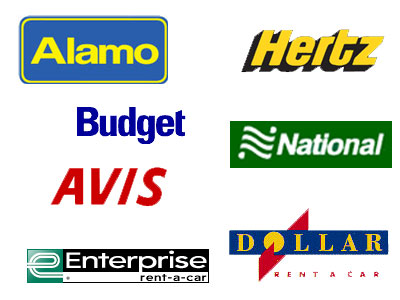One of the most asked questions our agents respond to is:
“Should I buy the insurance from the rental car company?”.
Consider the following when making your decision:
DAMAGE WAIVER & YOUR PERSONAL AUTO INSURANCE POLICY
A personal auto insurance policy will cover damage to a rented vehicle. Keep in mind there are other costs associated with damage to a rented vehicle that the policy will not cover. For this reason, careful consideration should be given to purchasing the damage waiver offered by the rental car company.
Your personal auto policy will only cover damage to the rental car if you have the appropriate coverage type on at least one vehicle you own. For example, if you damage the rental car in a collision, you must have “collision” coverage on at least one vehicle covered by your personal auto policy. But if the rental car is stolen, vandalized, or damaged in any way not resulting from a collision, you must have “comprehensive” coverage on at least one vehicle covered by your personal auto policy. The key point: The damage waiver usually offered at the rental counter will cover the damaged rental car regardless of what’s covered by your personal auto policy.
LIMITATIONS IN YOUR PERSONAL AUTO POLICY
What else could you possibly owe the rental company following an event or crash? These include administrative fees and the depreciated value of the vehicle after repairs—neither expense is covered by your personal auto policy. In addition, most personal auto policies only pay up to the actual cash value (ACV) of the damaged vehicle. If the contract requires the damaged rental’s replacement, the ACV payout may not be sufficient to cover the entire expense.
Again, in contrast, the damage waiver will cover all such expenses.
A rental contract might require you to pay the rental company’s “loss of use.” These are expenses they incur resulting from the inability to earn income from the damaged rental. This cost could be hundreds of dollars or more. Some personal auto policies will pay a limited amount for this expense (such as $20 per day or $600 total). Others will not cover it at all.
In contrast, the damage waiver will pay the full cost of the rental company’s loss of use.
NO CLAIM NECESSARY
If something happens to the rental car, purchasing the damage waiver gives the rental agency management of the process. This will allow you to avoid filing a claim and possibly help keep the cost of your insurance from going up. It also will keep your deductible in your pocket.
LIMITATIONS IN THE DAMAGE WAIVER
Perhaps the most important fact to remember is that the damage waiver only applies to damage to the rented vehicle. It is not a substitute for liability, medical payments, uninsured motorist, personal injury protection, and any other personal auto insurance coverage.
Buy it! There are too many types of consequential loss that are not covered by your personal auto insurance.


